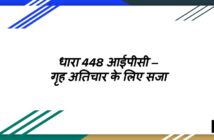RTI is the abbreviation for the right to information. The government of India implemented the RTI act to empower its citizens with complete transparency for all the central and state institutions. Under this Act, the citizens can ask for any information from the government or public institutions. The requested institution is required to respond within 30 days of receiving the request. These questions could be related to funds allocated to various government schemes, their progress, information on ongoing government projects, and more. Citizens can also ask for information related to their legal documents like driving license, passport, ITRs. If the information is eligible to become public, we have the right to access it.
In this blog post, we will cover everything there is to know about RTI. Let’s start with the background on the subject.
RTI- The Origin and Implementation
In 1987, an activist group called Mazdoor Kisaan Shakti Sanghathan (MKSS) joined a group of laborers in Rajasthan who were denied wages in the name of performance inconsistency. MKSS demanded the government to produce legitimate proof supporting their actions. Upon finally receiving the performance records along with other official documents, MKSS discovered the widespread corruption amongst the officials.
MKSS and other similar activist groups formed the National Campaign for People’s Right to Information (NCPRI). After months of protests, the NCPRI and the Press Council of India created the first draft of the RTI act in 1996.
The Freedom of Information Bill, 2000, was amalgamated with this draft and was released as the Freedom of Information Act, 2002. However, the Act did not sit right with people and was hence, repealed by the ruling party. After much debate, the Right to Information Act 2005, finally enacted and became fully functional from October 12th, 2005.
Key Features of the RTI Act, 2005
As per the definition, citizens can request any information from a public authority. They are required to reply within 30 days of the official request.
The information can be a document, email, press release, or other digital data.
In addition to inspecting the information, citizens can also take copies of the documents, work records, and certified samples. Other than that, they can procure information on both electronic devices and hard copies.
The official time to obtain the information is 30 days. However, under special circumstances, the requested information can be obtained in 2 working days. If the applicant fails to receive information within the scheduled time, they can appeal to a senior officer who is considered the first appellate.
A second appeal can be filed in case the decision of the first appellate is not satisfactory, or there is a delay of more than 45 days. The appeal needs to be filed at the respective state/central information commission.
The Act also mentions certain information types that are exempted under the official secrets act. However, if the disclosure overpowers the interests of the protected party as compared to the public interest, there could be an exception. Furthermore, the exempted information would cease its cause after every 20 years lapse.
The Act requires all the public authorities to publish a total of 16 categories of information. These categories hold the department details, duties, employees and officials’ responsibilities, rules, regulations, decision-making process, detailed functioning, grounds of discharge, manuals, and set of instructions.
The Act requires the public authorities to digitize their records, which helps to process the information request faster.
The penalty for refusing to provide information is set to Rs. 250 per day. However, it can not exceed Rs. 25000. It is also applicable in case of refusing to receive the application for information.
Filing for RTI- Steps and Procedure
To file an RTI application, follow these simple steps:
Pick the Department:
Your issue might concern State, Center, or Local Municipality. So, pick the department that holds the jurisdiction over your request.
Draft your Application:
You can draft your application on a plain sheet of paper with either a hand-written or typed out request. Start with addressing your application to the State or Central Public Information Officer (PIO), followed by the department you wish to seek information from. Mention that you are seeking information “under the RTI Act, 2005”. Clearly state your questions with all the possible details in support. You can ask for documents relating to the information at a nominal fee of Rs. 2 per document. This fee is separate from the standard RTI filing fee, which is set at Rs. 10. You can make the payment via cash, money order, court stamp, etc. Mention your contact details along with the complete address, signature, place, and date at the bottom. Make sure you have a copy of the original RTI application with you for future references. Once you finish drafting the request, post it via mail or hand it over in person.
Online RTI Filing:
The online process of filing an RTI request is relatively easier.
- Go to the link: Online RTI Filing
- Sign up with you details
- Select the concerning department
- Make an online payment for the fees
- Fill in the details and submit your request
Note: The link mentioned above is the RTI portal for Central Departments. If your issues lie within the public authorities of a state or a union territory, you need to file with their dedicated portals. Furthermore, the rules and regulations for filing an RTI also vary in different states and departments.
Closing remarks on Right to Information Act
The RTI act is meant to ensure democratic transparency. If used right, the Act allows us to check on the increasing corruption in various government departments. However, the lack of awareness among the people hinders the objective of this law. The government has deliberately kept the information gathering process simple for widespread dispersal of the information. If you have any questions for the government, the RTI act is your tactile passage to the answers.

